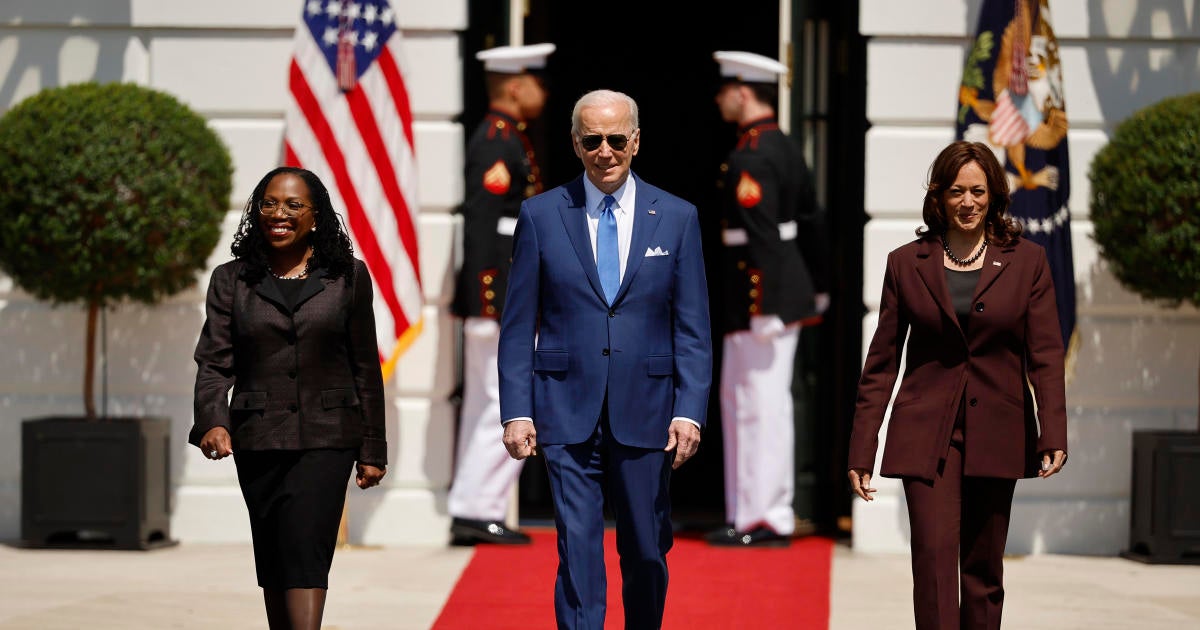
Biden ties Trump on judicial confirmations with Senate’s approval of his 234th nominee

Washington — The Senate on Friday confirmed President Biden’s 234th nominee to the federal judiciary, matching the number of judges approved for lifetime appointment to the nation’s courts during President-elect Donald Trump’s first term.
The confirmation of Benjamin Cheeks to the federal district court in Southern California by a 49 to 47 vote led Mr. Biden to tie the number of his predecessor’s judicial appointments. The president is on track to surpass Trump’s confirmations to the federal bench before the year’s end, with the Senate teeing up the nomination of Serena Murillo to the federal district court in Central California.
As he nears the end of his presidency, Mr. Biden will close out his four years in office having appointed one Supreme Court justice, 45 judges to the federal appeals courts, 186 to the district courts and two to the Court of International Trade. His selection of Justice Ketanji Brown Jackson made history, since she is the first Black woman to serve on the nation’s highest court.
Mr. Biden has also selected a record number of public defenders to serve as federal judges on the appeals courts, and his nominees are the most diverse compared to those tapped by his predecessors.
There’s been heightened focus on the judiciary by presidents in recent years as gridlock in Congress has led to unilateral executive actions on a variety of issues touching on American life. But often those efforts give way to legal challenges, leaving courts as the final deciders in disputes over hot-button policies.
While Mr. Biden will likely end his presidency with more judicial appointments than Trump, he did not see the same level of success as his predecessor in putting his stamp on the Supreme Court. Jackson replaced Justice Stephen Breyer, a member of the court’s liberal wing, following his retirement in 2022.
But Trump named three justices to the high court, Justices Neil Gorsuch, Brett Kavanaugh and Amy Coney Barrett. Barrett replaced the late Justice Ruth Bader Ginsburg, a liberal member, which locked in a 6-3 conservative supermajority.
Mr. Biden also trails Trump in appointments to the 13 courts of appeals, ending his presidency with 45 judges approved to those courts, compared to Trump’s 54.
But Trump had an advantage when he took office in 2017, inheriting 17 appellate court vacancies after the Republican-led Senate blocked then-President Barack Obama’s nominees in the last two years of his term. When Mr. Biden started his presidency, there were just two open seats on the courts of appeals.
With a second Trump term on the horizon, some judges who announced their plans to retire have reversed course as it became clear their replacements wouldn’t be confirmed before Jan. 3, when Republicans will assume control of the Senate.
Judge James Wynn of the 4th Circuit notified Mr. Biden last week that he would no longer assume senior status, a form of semi-retirement, and the White House withdrew the nomination of his possible successor, North Carolina Solicitor General Ryan Park.
North Carolina’s Republican senators, Thom Tillis and Ted Budd, opposed Park’s nomination, and Tillis lambasted Wynn’s decision to walk back his retirement, calling it “brazenly partisan” and driven by Trump’s election.
Two district court judges appointed by Democratic presidents, Judges Max Cogburn and Algenon Marbley, also rescinded their plans to take senior status following Trump’s victory, according to Reuters.
The reversals come after Senate Democrats reached a deal with Republicans to allow for swifter consideration of Mr. Biden’s district court picks. GOP senators — with Trump’s backing — had been working to slow the pace of judicial confirmations during the lame-duck session, but under the deal, they would forego procedural roadblocks on district court nominees if Democrats would not bring four remaining appellate court nominations up for a vote.
There will be four current or future vacancies on the courts of appeals for Trump to fill after he takes office and more than 30 on the district courts, according to the Administrative Office of the U.S. Courts.
Melissa Quinn
Source: cbsnews.com